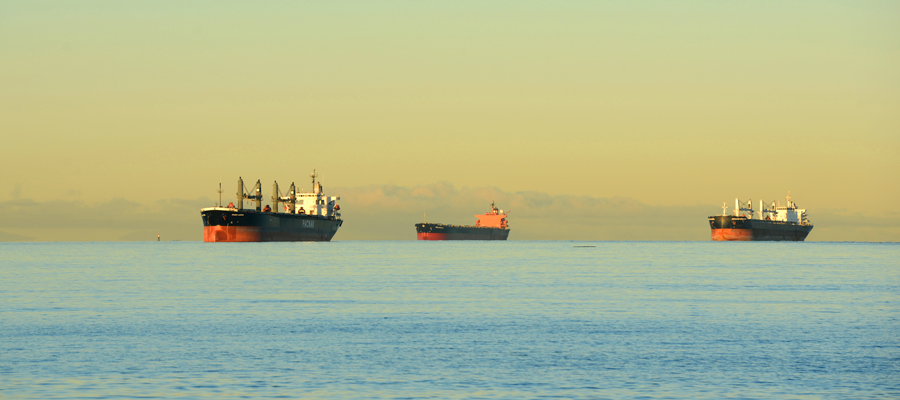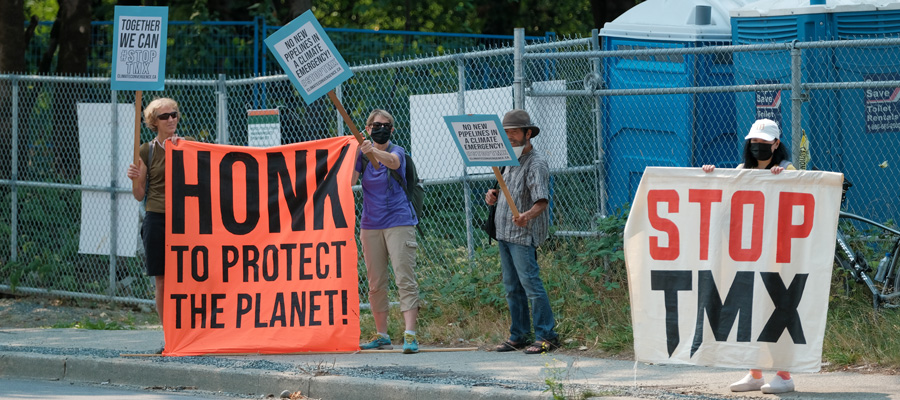Kinder Morgan’s Trans Mountain pipeline approval based on false assumptions

Once the political reality of British Columbia is determined, next steps on energy projects like Kinder Morgan’s Trans Mountain pipeline expansion and the Site C dam will follow.
And while the federal government has approved the pipeline expansion, the BC NDP and Green Party—which have signed a power-sharing agreement following the provincial election—say they will use every tool at their disposal to scuttle it.
When determining whether or not the pipeline expansion from Edmonton to Burnaby should proceed, a major consideration should be that approval for the project was based on a number of faulty assumptions as documented in my recent report for the Corporate Mapping Project.
One of the key assumptions made in approving the Kinder Morgan pipeline expansion was that Alberta’s bitumen is being unfairly discounted by US buyers and that its price can be maximized by getting it to tidewater and then to Asian markets.
A review of international and North American oil prices reveals that a significant ‘tidewater price premium’ does not exist.
The federal and Alberta governments and the oil industry argue that expanding the Trans Mountain pipeline would unlock Asian markets and result in a revenue windfall. However, a review of international and North American oil prices reveals that a significant ‘tidewater price premium’ does not exist.
Government and industry enthusiasm for tidewater pipeline access arose from a large premium that existed between international and North American oil prices between 2011 and 2014 due to a pipeline bottleneck in the US caused by a rapid increase in US oil production. This bottleneck has since been eliminated and the price differential retreated to just US$.82 per barrel in 2016. Given the higher transportation costs of exporting oil to Asia compared to the US, Canadian producers are likely to receive less from oil sold in Asia than if the oil was sold to US refineries.
A review of the documentation submitted to the National Energy Board (NEB) by Kinder Morgan reveals that other assumptions which led to the pipeline’s approval are also questionable. These include:
- Overly optimistic projections of future oil supply, which are much higher than the latest NEB projections and don’t consider the Alberta government’s cap on oil sands emissions imposed by its Climate Leadership Plan. Considering both the most-recent NEB projections and the Alberta emissions cap, Kinder Morgan overestimated oil supply by 43 per cent in 2038.
- Kinder Morgan’s expectation that no other export pipelines would be built. The federal government has approved Enbridge’s Line 3 and TransCanada’s Keystone XL pipelines, and President Trump has approved both pipelines south of the border. It is likely these projects will be built, and with them there will be a 13 per cent surplus of export pipeline capacity, without the Trans Mountain project, when western Canadian oil production peaks in the 2025 timeframe.
Of the three approved export pipelines, the Trans Mountain expansion project is the least desirable because it must cross rugged, environmentally sensitive terrain and would result in a seven-fold increase in tanker traffic to BC’s Lower Mainland, imposing unnecessary risks on sensitive marine environments.
Of the three approved export pipelines, the Trans Mountain expansion project is the least desirable.
Increasing oil and gas production while at the same time trying to reduce carbon emissions are also conflicting priorities.
Under the Alberta carbon emissions cap, oil sands production will be allowed to grow by 53 per cent above 2014 levels. This will require the rest of the Canadian economy to reduce emissions by 47 per cent by 2030 to meet Canada’s Paris Agreement commitments, which will be virtually impossible in the time remaining barring an economic collapse. Any reduction in oil sands output from the levels imposed by the emissions cap will create even more surplus pipeline export capacity without the Trans Mountain project.
These conflicting priorities stem from the fact that Canada has no energy strategy when it comes to oil and gas production beyond liquidating its resources as fast as possible in the name of short-term economic growth. Canada needs a comprehensive energy plan that addresses both its future energy security and its commitments on climate change.
—
This post was produced as part of the Corporate Mapping Project (CMP). The CMP is a six-year research and public engagement initiative jointly led by the University of Victoria, the Canadian Centre for Policy Alternatives’ BC and Saskatchewan Offices, and the Alberta-based Parkland Institute. The CMP is supported by the Social Science and Humanities Research Council of Canada (SSHRC).
Topics: Climate change & energy policy


